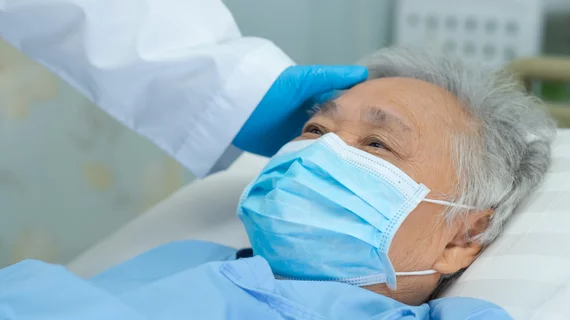How the body's own immune response is harming some COVID-19 patients
Needless platelet activity in the lungs may cause inflammation and blood clotting in critically ill COVID-19 patients, according to a new study published in Blood.
In the analysis, researchers found that antibodies designed to defend against COVID-19 caused a rise in platelet activity.
In the MATIS trial at Imperial College London and Imperial College Healthcare NHS Trust, researchers extracted antibodies from patients with severe COVID-19 infections and cloned them in their lab.
According to the authors, small sugars discovered on the surface of the antibodies were not the same as antibodies from healthy individuals, and when those cloned antibodies were presented in a lab to blood cells taken from healthy donors, an increase in platelet activity was noticed.
“Until now, we have only had assumptions about why platelets involved in clotting were being activated during COVID-19 infection,” senior author Jon Gibbins, director of the Institute for Cardiovascular and Metabolic Research at the University of Reading in the U.K., said in a prepared statement. “One way to think of what is happens is that the immune response that is designed to protect you from the infection in some cases, particularly in severely ill patients, actually causes more damage. In this case, the antibodies that are produced to stop COVID-19 from spreading trigger infected cells to induce platelet activity which causes clotting even though there is no wound that needs healing.”
Overall, the team found that it was feasible to decrease or halt platelets from reacting in the lab by treating blood with active ingredients from different medications known to either inhibit platelet function or immune responses.
These findings imply that drugs currently being used to treat immune system problems might be effective in reducing or stopping cells from producing a heightened platelet response.
“Having been involved in early research around blood clotting related to inflammation, it occurred to me that the drugs we already use for other disorders could be easily accessible treatments for COVID-19,” co-author Nicola Cooper, a consultant hematologist at Imperial College Healthcare NHS Trust, said in the same statement.
Cooper, who designed and leads the MATIS trial added: “We are yet to see results from the MATIS trial so we do not yet know how these drugs will work in patients, but our hope is that we can both inhibit the inflammatory response and prevent severe disease and blood clots. It is exciting to see our collaboration with Reading backing our theory already and providing a solid scientific basis for clinical trials.”
Read the full analysis here.
